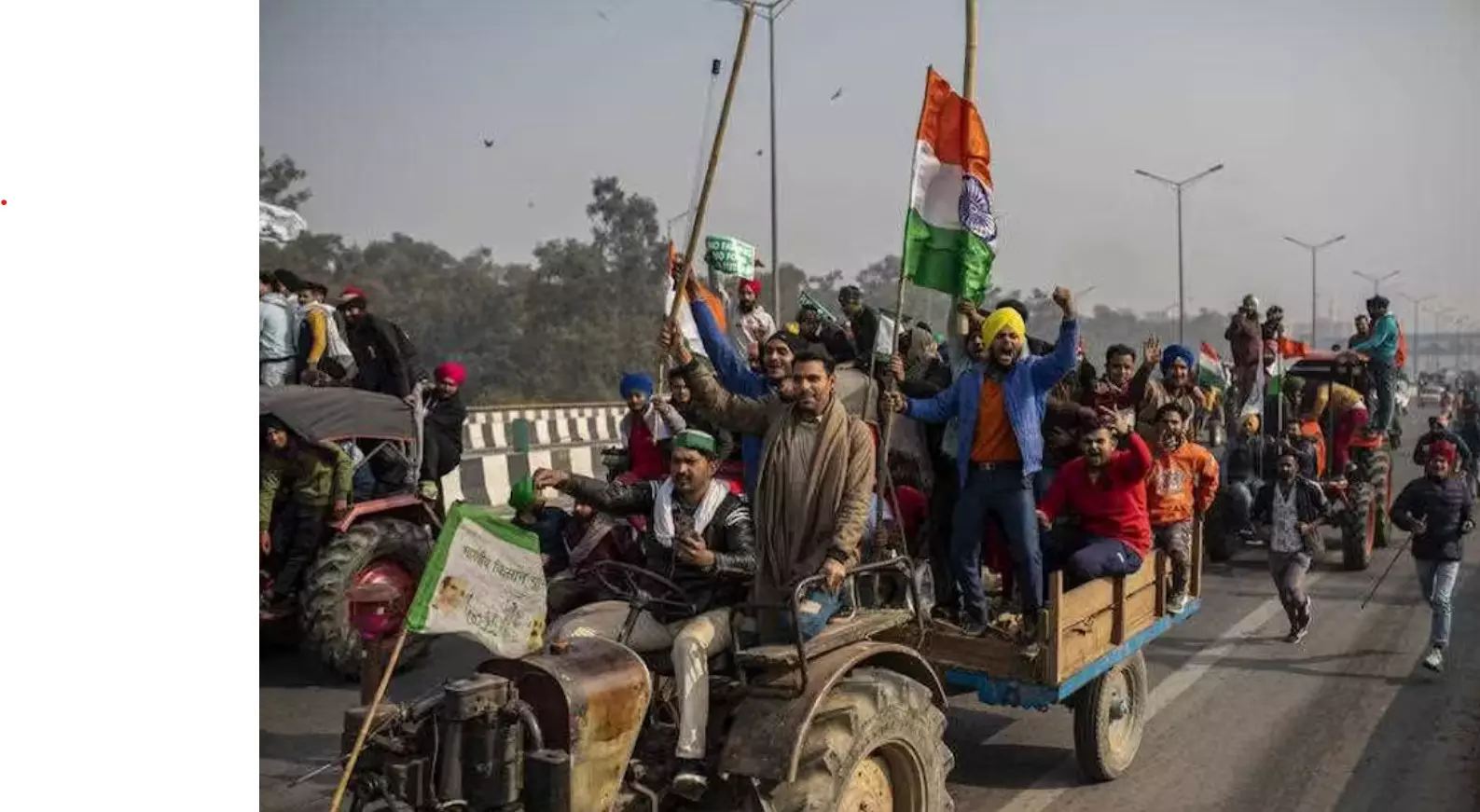Longstanding, genuine demands

The voice of Indian farmers in the broader political discourse has, more or less, been on the margins over the decades. It is not that the government’s policies have ever sidelined their interests. However, farmers have, at most, been passive recipients of benefits arising from policies. It was only a couple of years ago that they asserted their demands and interests so vocally that the Central government had to repeal three farm laws it had hastily enacted. Ahead of the General Elections, when every move related to governance is seen through a political lens, farmers are again exerting pressure on the administration by raising their longstanding demands.
Farmers constitute a large chunk of the overall Indian population, and their ire can harm the prospects of any government of the day. However, it might be wrong to look at the issue purely from a political lens. Most of the demands raised by the farmers have been in place for quite a long time, advocated by agricultural experts. It is good to see farmers themselves taking the lead and making their voices heard now. For a community whose individuals have long resorted to extreme steps like suicide in large numbers, almost in obscure silence, social-political agitation appears to be a heartening alternative. It is very important to gauge the seriousness of the demands put forth by farmers. The seven-point demands of a farmers’ organisation encompass various measures such as implementing guaranteed Minimum Support Prices (MSP) according to the MS Swaminathan Commission’s formula, alleviating agricultural debt, raising import duties on all agricultural goods, ending free trade agreements with the World Trade Organisation, resisting electricity board privatisation, barring Foreign Direct Investment and corporate influence in agriculture, and instituting a pension plan for farmers.
Even a cursory glance at these demands would reveal that most of the issues pertain to structural problems, necessitating government intervention. Interestingly, these demands align with the government’s own priorities, whether it be increasing farmers' income, bolstering India’s domestic market, or securing a favourable trade scenario. In order to promote cross-sectoral equity, the government must balance the interests of corporates with those of farmers, an essential prerequisite for India’s all-round development. Furthermore, internationally, the list of demands should inspire the government to be more vocal about securing Indian farmers’ interests at the upcoming 13th Ministerial Conference.
In an immediate response to farmers’ announcement of the ‘Dilli Chalo’ march, the Delhi Police imposed Section 144 of the Criminal Procedure Code in North-East Delhi and at the borders with neighbouring Uttar Pradesh to avoid any untoward incidents and ensure law and order. Section 144 has been imposed in other parts of the region as well. Earlier, the police had arrested several farmer leaders, which did not sit well with farmer unions. Though the demands put forth by farmers are not new, government officials have clarified that the demands can’t be accepted without consulting multiple ministries. While the government is within its right to take preventive measures for maintaining law and order, it should be careful not to curtail their protests. Furthermore, it is duty-bound to address the genuine concerns raised by farmers at the earliest.




